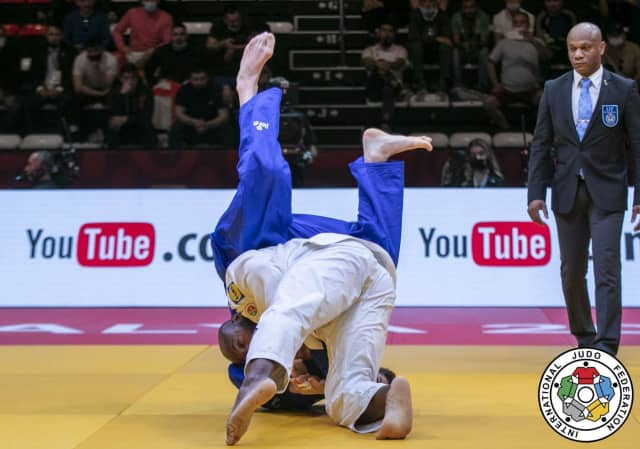In other words, a world championship or an Olympic Games are attended by countries that, at the moment, cannot even dream of a medal, let alone a title. At the European Championships, which take place this weekend in Sofia, all the delegations have legitimate aspirations. Of course, each case is different and there is a hierarchy. For example, according to Majlinda Kelmendi, in Bulgaria the favourites are France, who have brought their powerful women's team. Behind, according to the former Kosovar judoka and young coach, are Israel and the Netherlands. This is the data that Majlinda handles, but it also helps to know what she herself thinks of the degree of difficulty, because she is perhaps the most authoritative voice due to her four European titles, three world titles and one Olympic title. “For me the European championships are easier than the world championships, but the world title is more complicated than the Olympic Games. In some Games, especially if you are seeded, it only takes one victory to be in the quarter-finals. The world title is the most difficult because all the best are there from the opening round.”
Thus, we wonder what the 361 judoka who have travelled to Sofia are looking for. Well, first of all, there is a gold medal, the first title of the so-called triple crown, which is completed by the world and Olympic titles. Secondly, everyone wants to accumulate points for a place on the starting grid for the Olympic qualification opening in June. Finally, it is about settling veterans and tanning neophytes. This explains the presence of great champions, such as the Portuguese Jorge Fonseca, the Belgian Matthias Casse, the Kosovar Distrian Krasniqi, the Georgian Lasha Shavdatuashvili or the Spanish Nikoloz Sherazadishvili and these are just a few examples. Their mission is to win and support the youngest, who need to learn, but who look askance at Paris 2024.
Since we have Majlinda next to us, we ask about Kosovo. “We have Distria Krasniqi and Akil Gjakova, that is, the Tokyo Olympic champion and the brother of the other defending champion, Nora, who already knows the circuit and we have brought two youngsters, Laura Fazliu and Flaka Loxha.” Majlinda ends with a comment that sounds like a sentence and explains part of the success of Kosovo. "We come for medals, at least one and we think we can do it, otherwise we wouldn't be here."
Sofia has, as of Friday and until Sunday, the highest concentration of talent in Europe. Along the way, almost all of them will stay, it is the essence of a tournament and we will see which countries dominate the front pages of the media and which ones return home hoping for better times.


